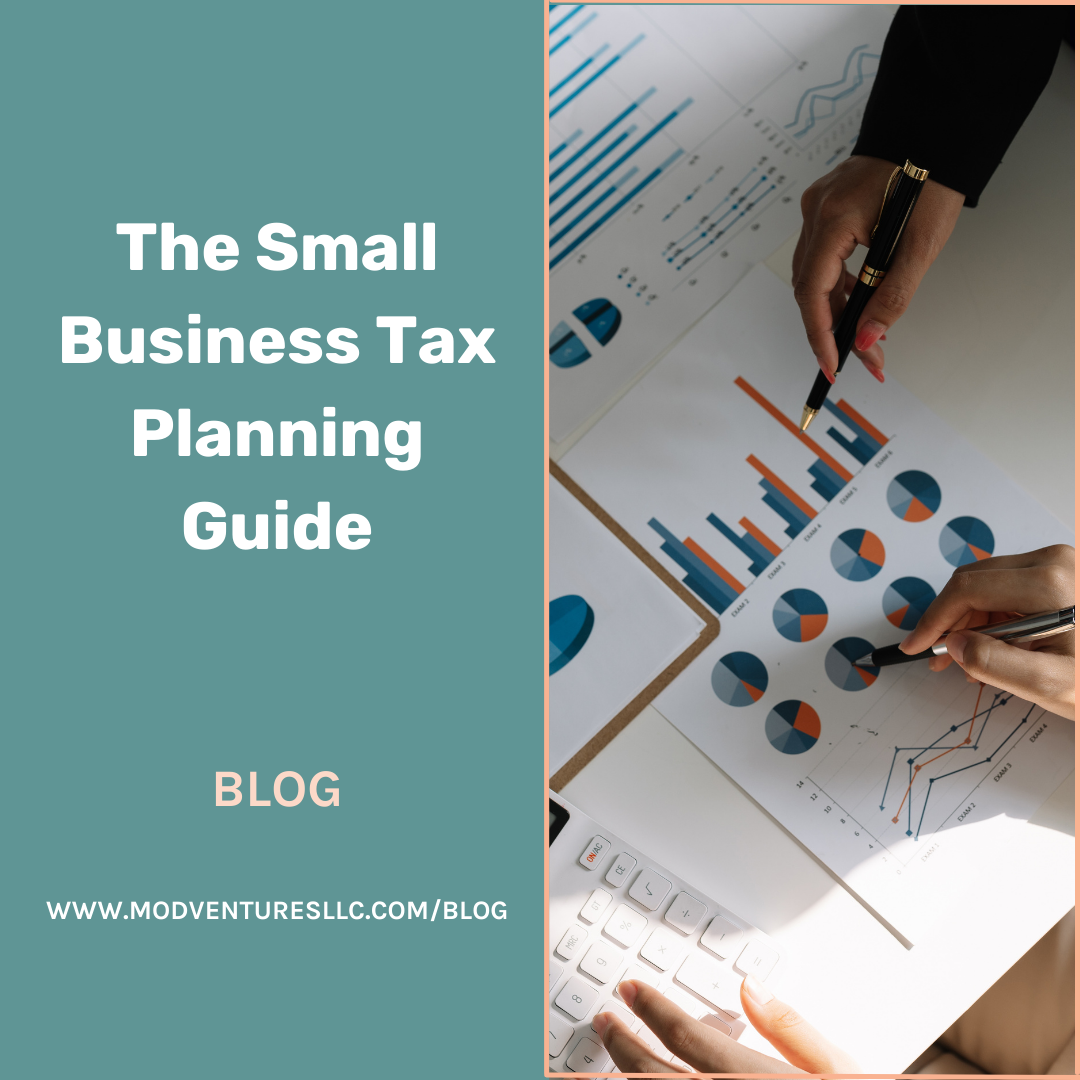By: Gabrielle Luoma CPA, CGMA
By: Gabrielle Luoma CPA, CGMA
As a small business owner in the US, it’s important to know the ins and outs of preparing for tax season. While outsourcing is a great way to prepare for some small businesses, other small businesses – like freelancers, influencers, content creators, etc. – can benefit from doing it DIY.
If you’re in the latter, here is the small business tax planning guide that will help you have a smooth tax preparation.
How to Plan for Tax Season as a Small Business
While tax season is only a few weeks each year, tax preparation and tax planning should be completed year-round. A lack of preparation can lead to a lot of headaches when taxes are due. In fact, a lack of planning can lead to an exorbitant amount of unpaid taxes – because you should have beenpaying estimated quarterly taxes.
Here are some ways to plan and prepare for tax season:
Know Your Business Structure/Entity Type
As a small business owner, you’re likely filing as a pass-through business, like a sole proprietorship, partnership, LLC, etc. For tax purposes, you should determine whether you will continue to file this way or if you’ve outgrown your business structure. For example, LLCs can choose to be taxed like a C-corporation if needed.
Familiarize Yourself with Deductions – and Keep Records
You would be surprised by the amount of business tools and services that are tax deductible. But, to take full advantage of them you need to accurately track and document your purchases – what it was, how much it was, and even a note regarding what it is for.
Additionally, you should keep a receipt or a copy of your paid invoice for tax time. While not always required when filing, it is immensely helpful if your business is audited.
You can learn more aboutmaximizing your deductions here.
Look (and Plan for) Tax Breaks
Not all are common knowledge, but there are many programs and rules available for small business owners to take advantage of for tax breaks. One such program is the Augusta Rule, a tax break for renting out your house to your business.
Keep Your Finances Organized
Your business finances should be organized and separate from your finances. You should have a dedicated business bank account to use for your transactions. If you’ve used your personal for business or business for personal use, you should account for that in your bookkeeping.
Most purchases should be “reimbursed” to settle your accounts. Even if the purchase was from your personal for your business, you should “pay yourself back.”
Decide if You’re Going to DIY or Hire Out Your Taxes
Taxes can be done on your own, but depending on how your business has performed or is predicted to perform throughout the year, hiring out may be more time and cost-effective. If you’re planning to DIY, you should consider finding accurate resources to ensure you’re doing so accurately.
If you plan to hire out your taxes, consult with your desired tax professional beforehand to establish what you should expect and what information you should have prepared for tax season.
Don’t Wait Last Minute to Ask Questions
If you did decide that you’re going to DIY your tax prep or your business has changed and now you’re unsure what to prepare for tax season, consult now – not later.
Preparing for taxes last minute can leave you without an available professional or higher fees to compensate for unprepared paperwork or more time dedicated to solving the problem, rather than fixing it beforehand.
If you’re considering hiring out your tax preparation, MOD VENTURES LLC is here to help! If you’re looking for consulting rather than full-service tax preparation, meet with our team today!
You May Also Love
CLOSE






